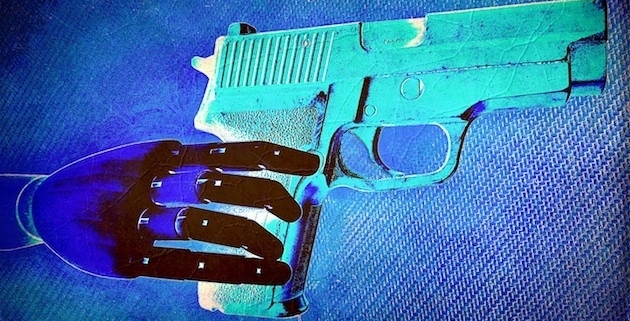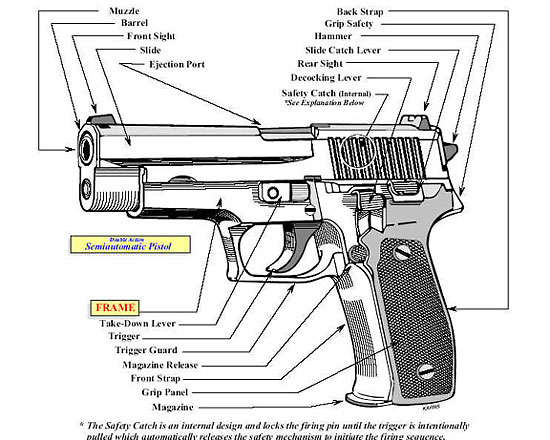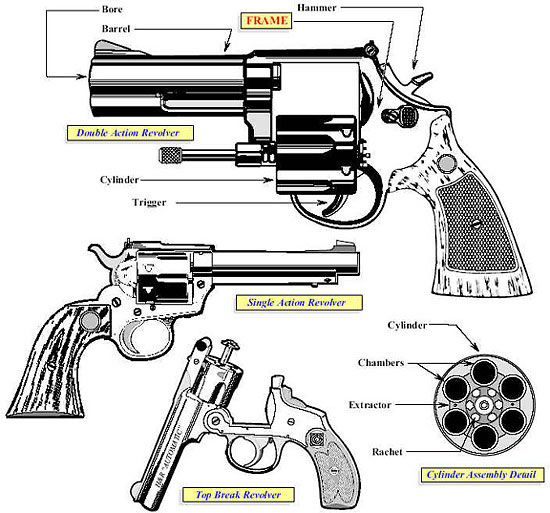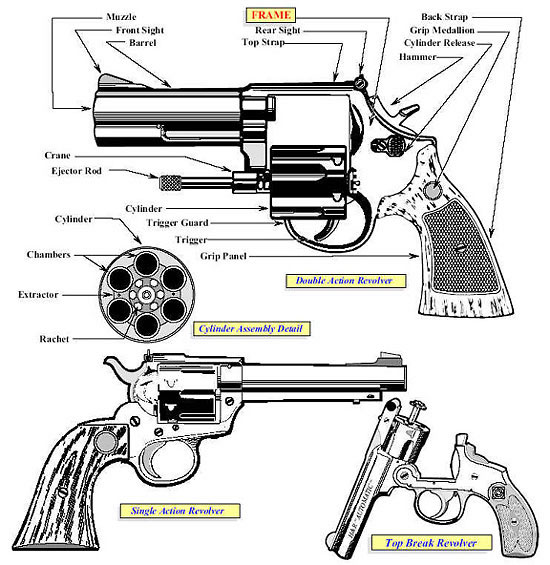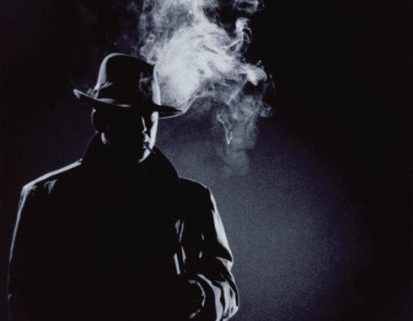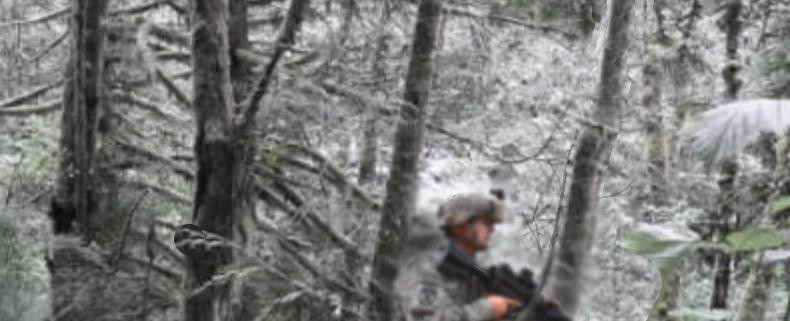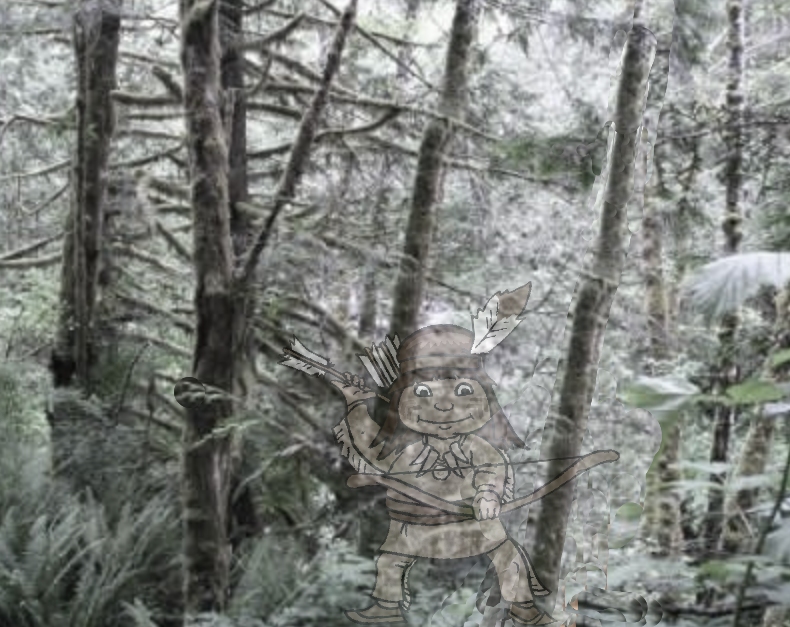Fictional characters aren’t always as savvy as they’d like us to believe. They’re not human. They make mistakes. And some of those errors, especially those made by characters in crime fiction, involve guns. For example, I’ve known a handful of make-believe cops and criminals who didn’t know the difference between smokeless powder and cordite, and that cordite use in ammunition ceased at the end of WWII.
And there’s this, the differences between revolvers and pistols.
Pistol
The term “Pistol” means a weapon originally designed, made, and intended to fire a projectile (bullet) from one or more barrels when held in one hand, and having:
- a chamber(s) as an integral part(s) of, or permanently aligned with, the bore(s);
- and a short stock designed to be gripped by one hand at an angle to and extending below the line of the bore(s).
Pistol nomenclature (below).
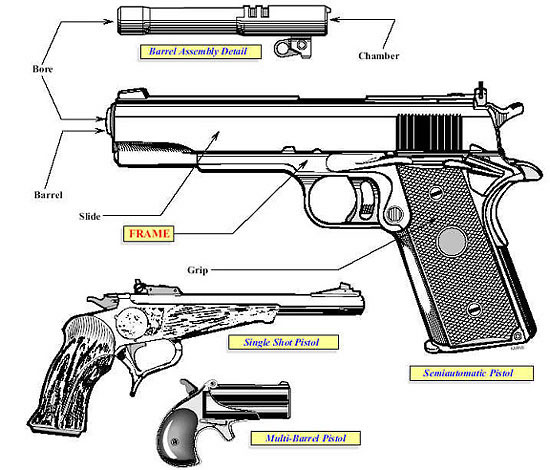
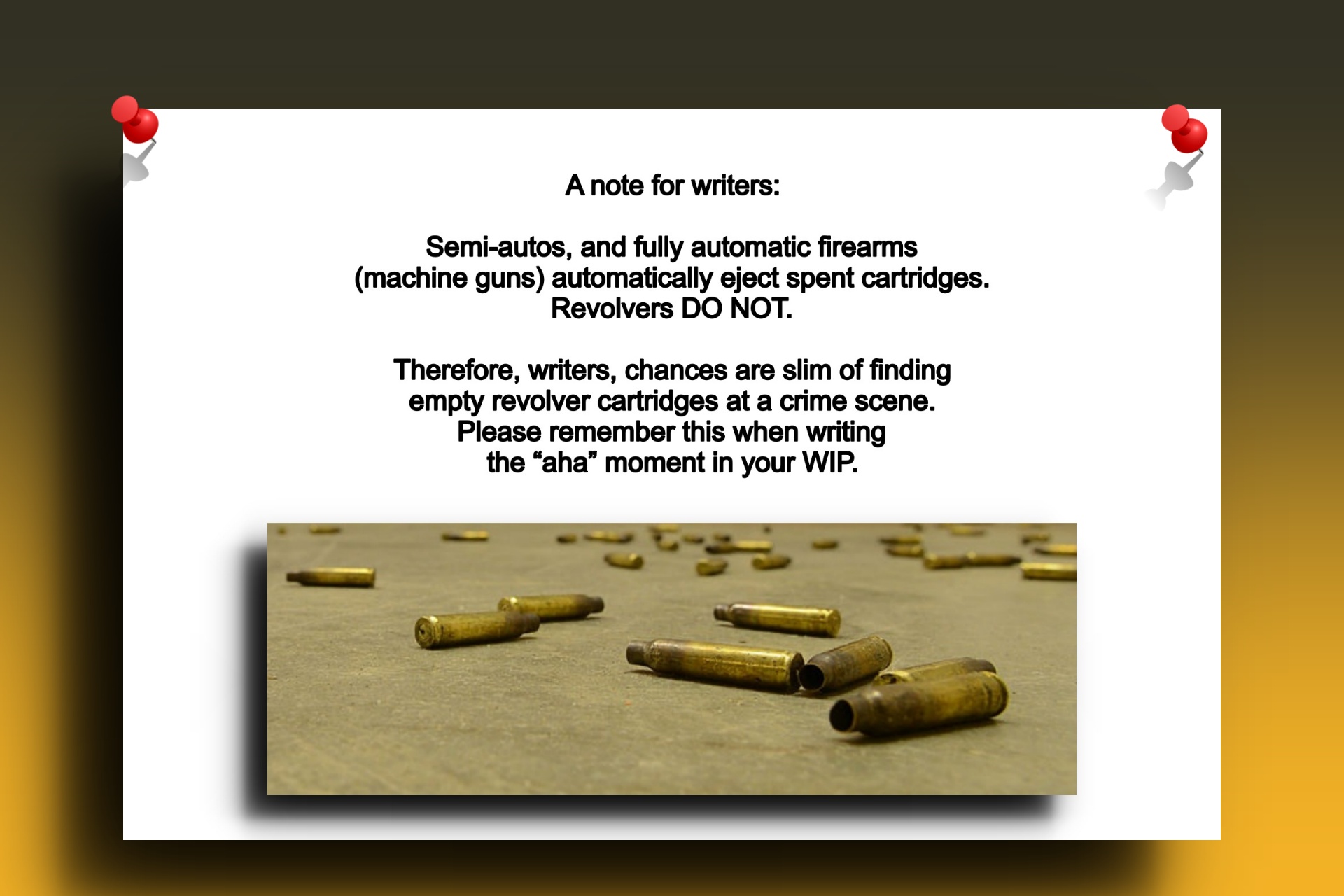
Revolver
The term “Revolver” means a projectile weapon of the pistol type, having a breechloading chambered cylinder so arranged that the cocking of the hammer or movement of the trigger rotates it and brings the next cartridge in line with the barrel for firing.
Revolver nomenclature (below).
Semi-autos and fully automatic (machine guns) automatically eject spent cartridges. Revolvers DO NOT. Therefore, writers, chances are slim and mostly none of finding empty revolver cartridges at a crime scene. Please remember this when writing the “aha” moment in your WIP.
Fun Stuff
Can you spot the errors in the text below? Hint – there are more than five, and each is something I’ve read in a book or manuscript.
Mr. Heeza Dilly, a former police captain, was a fire arms instructor back in the day. His specialty was handguns and he taught recruits how to shoot them safely and efficiently. He also showed them how to properly fit revolvers with silencers, and how to avoid being hit with hot brass at it’s automatically ejected from the chamber of a revolver.
Of course, he made it a point to highlight the importance of always keeping safeties switched to the ON position on both Glock and SIG Sauer semi-automatic pistols. After all, all cops are always trained to carry weapons with the safeties on, and without a round in the chamber. These rules are no-brainers according to Dilly, because they 100% prevent the accidental discharge of the officer’s fire arm.
Other tips shared by Dilly were:
- Always surrender your weapon to a bad guy if he demands that you do so while aiming his gun at you or a hostage.
- Never use two hands when firing a handgun, because you need a free hand to: operate your portable radio to call for backup, gesture to a suspect and/or fellow officers, stop traffic, or hold handcuffs in preparation of the arrest.
- When working in plainclothes, always store your handgun tucked inside your belt and pants at the small of your back.
- Keep in mind that all revolver cylinders rotate clockwise, never counterclockwise.
- It’s quite easy to tell the caliber of bullet used in a homicide merely by looking at the size of an entrance or exit wound.
- A semi-automatic weapon, such as a Glock 9mm pistol or AR-15 rifle, fires only once per pull of the trigger (only one round fired each time the trigger is pulled).
- Machine guns (mega-expensive, fully-automatic weapons that require special, federally mandated licenses to own) fire multiple rounds with a single, continuous pull of the trigger. As long as the trigger remains depressed, a fully automatic weapon will continue to fire until ammunition is depleted.
May you legally own a machine gun (a fully-automatic weapon)? Click here to find out.
*The above pistol and revolver graphics, nomenclature, and accompanying text are from ATF (Alcohol, Tobacco, Firearms, and Explosives). Thanks to the folks at ATF for allowing the reproduction and use.

